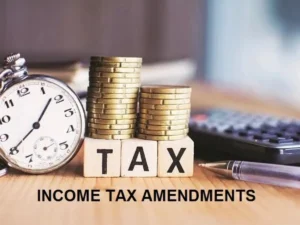The Income Tax Act, 1961, serves as the cornerstone of tax legislation in India, providing a clear framework for the assessment and taxation of income across various sources. Among its foundational terms, “business” stands out as a critical concept, defined under Section 2(13). This blog delves deep into the definition of “business,” its scope, and its relevance in taxation, ensuring you have a clear understanding of this fundamental term.
What Does Section 2(13) of the Income Tax Act Say About “Business”?
As per Section 2(13) of the Income Tax Act, “business” is defined as:
“Business includes any trade, commerce, or manufacture or any adventure or concern in the nature of trade, commerce, or manufacture.”
This definition is inclusive, implying that it covers not only the conventional forms of trade, commerce, and manufacturing but also extends to activities that bear a resemblance to such operations. The use of the word “includes” highlights the Act’s intent to cover a wide range of activities under the umbrella of “business.”

Key Elements of the Definition
- Trade: Refers to buying and selling goods or services with the intent of earning a profit.
- Commerce: Encompasses activities involving the exchange of goods or services on a broader scale.
- Manufacture: Relates to activities that involve converting raw materials into finished goods for sale.
- Adventure or Concern in the Nature of Trade: This phrase extends the definition to one-off or irregular transactions, provided they have a commercial nature or profit motive.
Significance of the Inclusive Definition
The inclusive nature of the definition ensures that even unconventional activities, such as speculative transactions or occasional ventures with a profit motive, are treated as a business for tax purposes. For example:
- A one-time real estate transaction with profit motives can qualify as a business.
- Activities like leasing or renting property may also fall under this category if the intent is commercial.
Scope of “Business” in Taxation
Understanding what constitutes a business is essential for determining:
- Taxable Income: The profits and gains from business activities form a significant part of taxable income under Section 28 of the Act.
- Allowable Deductions: Business expenses incurred exclusively for generating income are deductible under Sections 30 to 37.
- Presumptive Taxation: Certain small businesses can benefit from presumptive taxation under Section 44AD.
- GST Implications: Businesses are required to comply with Goods and Services Tax (GST) laws, further highlighting the importance of defining business activities.
Judicial Interpretations of “Business”
Several court rulings have helped clarify the scope of “business” under the Act:
- Sole Motive of Profit is Not Necessary: The Supreme Court in the case of CIT v. Andhra Pradesh State Road Transport Corporation ruled that even activities without a predominant profit motive could be classified as a business if they exhibit elements of trade or commerce.
- Adventure in the Nature of Trade: In G. Venkataswami Naidu & Co. v. CIT, the court held that even a single transaction could be considered a business if it has characteristics of trade, such as intention to sell at a profit.
Why Is This Definition Important for Taxpayers?
The definition of “business” directly impacts:
- Classification of Income: It determines whether an activity’s income is taxed under “Profits and Gains of Business or Profession” or other heads like “Income from Other Sources.”
- Compliance Requirements: Businesses must maintain books of accounts under Section 44AA and get audited under Section 44AB, depending on turnover or income thresholds.
- Tax Planning: Knowing whether an activity qualifies as a business helps in optimizing tax liabilities through allowable deductions and exemptions.
FAQs on the Definition of Business Under Section 2(13)
Q1. What activities are excluded from the definition of “business”?
Activities purely for personal purposes, without any commercial intent or profit motive, are excluded. For example, a hobby pursued without any intention of earning profit does not qualify as a business.
Q2. Can a one-time transaction be treated as a business?
Yes, if the transaction has characteristics of trade or commerce, such as a profit motive or commercial intent, it can be treated as a business.
Q3. How does the definition of “business” affect deductions?
Only expenses incurred for activities classified as a business are eligible for deductions under Sections 30 to 37 of the Income Tax Act.
Q4. Is leasing or renting property considered a business?
It depends on the nature of the activity. If the leasing or renting is carried out with a systematic and commercial approach, it can qualify as a business.
Conclusion
The term “business” under Section 2(13) of the Income Tax Act encompasses a wide range of activities, ensuring that all commercial ventures, whether regular or sporadic, fall under its ambit. For taxpayers, understanding this definition is crucial for ensuring proper compliance with tax laws, optimizing deductions, and avoiding unnecessary litigation.
Whether you are a seasoned entrepreneur or a first-time taxpayer venturing into a new activity, knowing the scope of “business” can help you navigate the complexities of income tax with confidence.
For more insights and expert advice on tax compliance, visit www.smarttaxsaver.com and explore our extensive resources to simplify your tax journey.

![Read more about the article Role of the Principal Director General of Income-Tax [Section 2(34D) of the Income-Tax Act]](https://smarttaxsaver.com/wp-content/uploads/2024/11/l3-comparative-analysis-of-tax-administration-v2-shutterstock-2182056901-300x169.webp)

